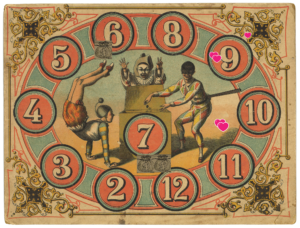A bill recently introduced in the New York Assembly aims at broadening the scope of the laws governing child performers to include “children who participate in online videos that generate earnings.”
This would allow children performing in “influencer videos” to be considered child performers and thus be able to benefit from the protection of the New York law covering child performers, particularly N.Y. Lab. Law § 150 – 154A on employment and education of child performers.
The justification of the bill argues that:
“The internet has created a world where anyone with a smartphone can become a producer of content and parents can easily upload videos of their children and instantly create an internet star.
Unfortunately, these young online actors lack the protections granted to children working in film and television. Increasingly more parents and children are becoming content producers each day and no regulations are in place to protect children against exploitation.”
Expansion of what is “artistic or creative services” under the law
The bill proposes to modify N.Y. Lab. Law § 150(1) – Definitions to include “influencer” in the list of what is “artistic or creative services” under the law. Such services would include:
“participation in a video that is posted to a video-sharing social networking internet website which generates earnings from sponsors or by other means, based on the number of views of such video, based on the number of clicks on a link leading to such video.”

A child influencer would be a child performer
The bill would change the definition of a “child performer” under N.Y. Lab. Law § 150 to include a child who:
“agrees to render artistic or creative services [as defined by section 150 of the labor code law] where such artistic or creative service were recorded in the state of New York or uploaded to a sharing and/or social networking internet website from within the state of New York.”
The bill would change the definition of a “child performer’s employer ” under N.Y. Lab. Law § 150 to include persons employing a “child performer” to furnish “artistic or creative services,” and “video-sharing and/or social networking internet website[s] that generat[e] earnings from videos qualifying as artistic or creative services by a child performer.”
New York Child Performer Law
“Child influencers” would thus be considered by New York law as child performers and would thus benefit from the protection of the law for child performers.
New York child performer law protects the interests of child performers. Under Article 7 of the New York State Estates, Powers, and Trusts Law (N.Y. Est. Powers and Trusts Law § 7-7.1 – Child performer trust account), the custodian and guardian of a child performer must establish a child performer account withing fifteen days of the commencement of employment, if such account has not been previously established.
Such accounts are sometimes referred to “Coogan Accounts,” after Jackie Coogan from The Kid fame, whose fate, losing the millions of dollars earned as a child performer through parental mismanagement, led to the passing of the California Child Actor’s Bill, the “Coogan Act,” which inspired the New York law.
Under New York law, the custodian of the trust account must then “promptly” notify the child performer’s employer of the existence of the account. The employer must transfer fifteen percent of gross earnings to this account “within thirty days following the final day of employment.” The parent, legal guardian or custodian can require than more than fifteen percent of the gross earnings should be transferred to the trust account. If the balance of the account reaches two hundred fifty thousand dollars or more, a trust company must be appointed as custodian of the account.
Such thresholds may be easily reached for some child influencers with a high earning power: two minors toped Forbes’ list of Highest-Paid YouTube Stars of 2019, Anastasia Radzinskaya placing number 3 with an estimated $18 million earnings and Ryan Kaji taking first place with an estimated earnings of $26 million. Ryan Kaji became popular on YouTube and can be seen reviewing toys and “unboxing” toys. He earned $29.5 million in 2020, through ad revenue alone, but earned much more, $200 million, through derivative product deals, such as toys and clothes bearing his name.
This issue has already been addressed in France, and the New York bill is likely to inspire similar state bills.



